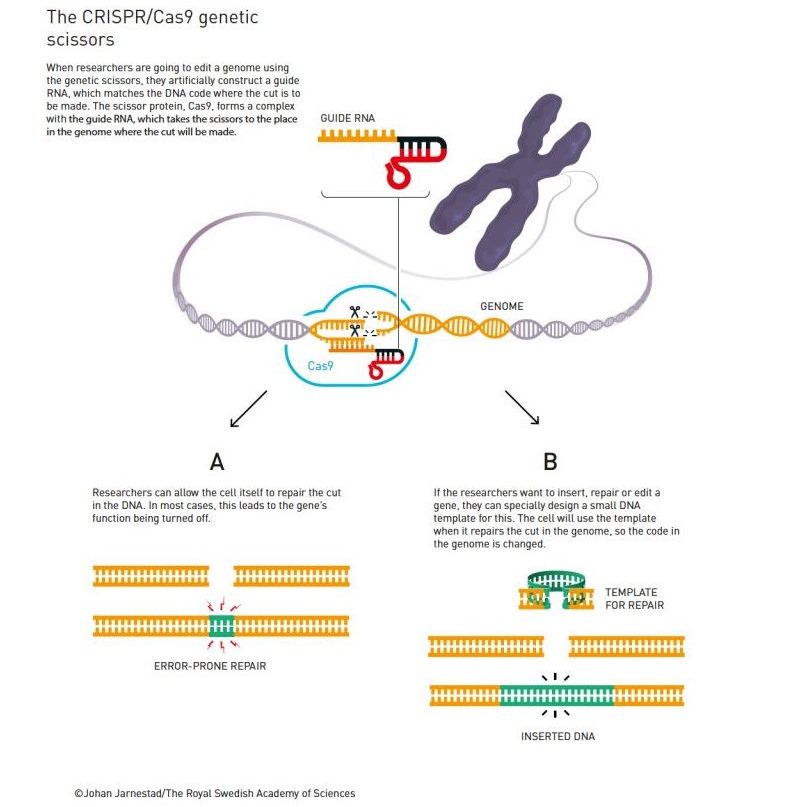French researcher Emmanuelle Charpentier and US researcher Jennifer A. Doudna, who have discovered a tool which can change the DNA of animals or plants, have been awarded the Nobel Prize in Chemistry.
The award was announced today (Wednesday, October 7) by the Royal Swedish Academy of Sciences.
The women, based at universities in Berlin and California, discovered one of gene technology’s sharpest tools: The CRISPR/Cas9 genetic scissors.
Using these, researchers can change the DNA of animals, plants and microorganisms with extremely high precision.
Researchers need to modify genes in cells if they are to find out about life’s inner workings.
This used to be time-consuming, difficult and sometimes impossible work. Using the CRISPR/Cas9 genetic scissors, it is now possible to change the code of life over the course of a few weeks.
“There is enormous power in this genetic tool, which affects us all. It has not only revolutionised basic science, but also resulted in innovative crops and will lead to ground-breaking new medical treatments,” said Claes Gustafsson, chair of the Nobel Committee for Chemistry.
What does the academy do?
The Royal Swedish Academy of Sciences, founded in 1739, is an independent organisation whose overall objective is to promote the sciences and strengthen their influence in society.
The academy takes special responsibility for the natural sciences and mathematics, but aims to promote the exchange of ideas between various disciplines.
History of genome editing method
During Emmanuelle Charpentier’s studies of one of the bacteria that cause the most harm to humanity, she discovered a previously unknown molecule.
Her work showed that this molecule is part of bacteria’s ancient immune system that disarms viruses by cleaving their DNA.
Charpentier published her discovery in 2011. The same year, she initiated a collaboration with Jennifer Doudna, an experienced biochemit.
Together, they succeeded in recreating the bacteria’s genetic scissors in a test tube and simplifying the scissors’ molecular components so they were easier to use.
In their natural form, the scissors recognise DNA from viruses, but Charpentier and Doudna proved that they could be controlled so that they can cut any DNA molecule at a predetermined site.
Where the DNA is cut it is then easy to rewrite the code of life.
In medicine, clinical trials of new cancer therapies are underway.
Nobel Prize
This is the first time that two women have won the Nobel Prize in the same year.
10 million Swedish kronor (€950,000) will to be shared equally between the Laureates as part of the prize.


